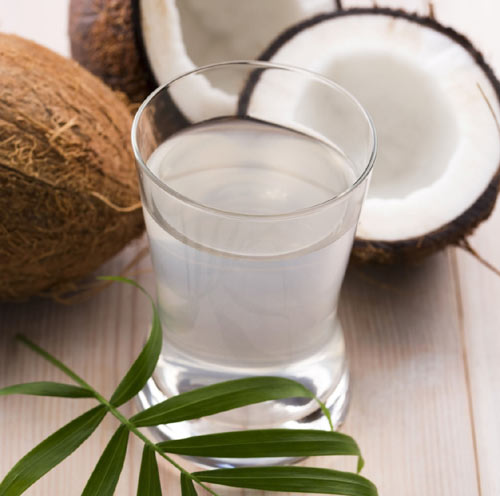
Coconut water: Extracted from the inside of an immature green coconut, this thin filmy liquid contains 600 to 700 mg of potassium and 40 to 250 mg of sodium per 8 oz serving, which is why it's touted as "nature's sports drink." However, you won't see any added benefit from drinking coconut water after a light-to-moderate workout. In fact, a 2012 study showed no difference in hydration status between consuming coconut water versus a commercial sports drink following a 60-minute bout of treadmill exercise. Unflavored coconut water boasts fewer calories and less sugar than the average sports drink, however.
Maple water: This drink is subtly sweet -- far less sweet than its counterpart, maple syrup, despite being made from the sap of a maple tree. You'd have to boil down 40 gallons of maple water to get just one gallon of maple syrup. While studies have confirmed that maple syrup contains over 50 unique phytochemicals, including abscisic acid, a phytohormone that's being investigated for its role in affecting blood sugar regulation, there is no research available on newcomer maple water. This trendy drink contains less potassium than coconut water, but offers up a small quantity of other unique nutrients, like iron and calcium (both only 2 percent of the Daily Value) and a significant amount of manganese (40 percent DV).
Birch water: Similar to maple water, birch water is extracted by tapping birch trees. The resulting fluid boasts electrolyte and antioxidant content, yet offers a relatively small number of trace minerals, like calcium, zinc, iron, copper and magnesium. However, birch water contains saponin, a compound that occurs naturally in plant foods and has been studied for its cholesterol-lowering effects; it's unknown, however, just how much saponin the water contains. Popular brands of birch water also contain added sugar, so be mindful.
Plant waters can be included in a healthy diet as a lower-calorie, lower-sugar, less-processed alternative to soda and commercial sports drinks. However, the ticket price of these trendy waters can be high. Plain water does just as good a job of hydrating the average exerciser.
Comment by clicking here.



 Contact The Editor
Contact The Editor
 Articles By This Author
Articles By This Author